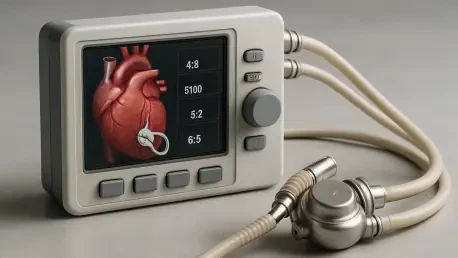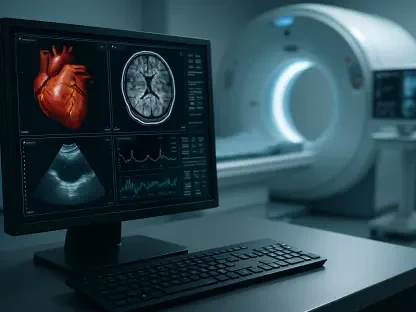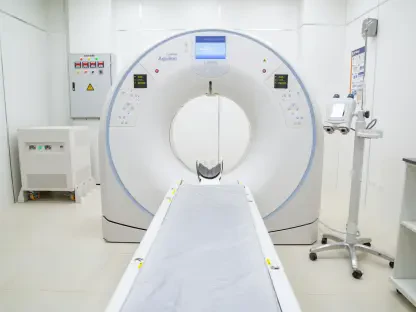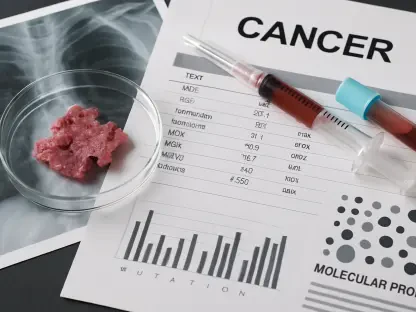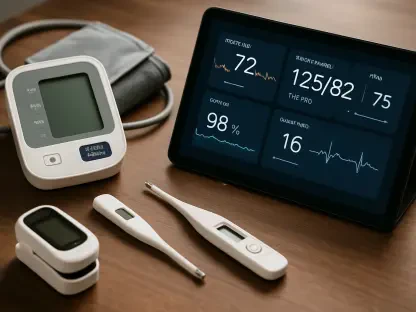In the ever-evolving landscape of medical technology, patient safety remains paramount, yet challenges persist even with the most innovative devices, as seen in Johnson & Johnson’s subsidiary, Abiomed, which has once again found itself under scrutiny. A recent recall of its Automated Impella Controllers, integral components of the Impella heart pump system, has been announced. This device, specifically the Impella 2.5, plays a critical role in supporting blood flow during high-risk cardiac procedures or in cases of cardiogenic shock, alleviating stress on the left ventricle to aid heart recovery. However, recurring technical flaws in the controllers have raised significant concerns. Announced by the Food and Drug Administration (FDA), this latest recall targets a specific design issue tied to purge pressure failures that could jeopardize patient outcomes. As the medical community grapples with these setbacks, the focus sharpens on how such vital technology can be refined to ensure reliability while maintaining its life-saving potential.
Unpacking the Latest Recall Details
The most recent recall of Abiomed’s Automated Impella Controllers centers on a critical flaw in the purge retainer mechanism, a component essential to the device’s operation. This issue, often triggered by excessive force during the insertion or removal of purge discs, can lead to cracks in the retainer. Such damage disrupts the purge system, which is designed to prevent blood from infiltrating the pump’s motor. When this system fails, it can cause errors, trigger alarms, or even halt hemodynamic support entirely. The FDA has warned that a complete loss of support could result in severe consequences, including permanent impairment or death. As reported, five serious injuries have been linked to this specific problem, though fortunately, no fatalities have occurred in connection with this particular recall. This situation underscores the delicate balance between innovation and safety in medical devices, highlighting the urgent need for robust design solutions to prevent such risks from arising during critical patient care.
Beyond the technical specifics, Abiomed has taken proactive steps to address the identified flaw by implementing a design modification. The solution involves adding a single screw to the purge retainer to enhance its durability and prevent failures. According to company statements, a thorough review of complaints revealed a relatively low occurrence rate of 0.61% for these issues. Impressively, the updated design has already been incorporated into 91% of the affected controllers worldwide, showcasing a rapid response to mitigate potential harm. The FDA has also provided guidance that existing hospital inventory can continue to be used while field servicing teams work with customers to return and update affected units. This approach reflects a pragmatic effort to maintain access to life-saving technology while addressing the underlying problem, though it also raises questions about the initial testing and validation processes that allowed such a flaw to reach clinical settings.
A Pattern of Safety Concerns
The recall of the Automated Impella Controllers is not an isolated incident but part of a troubling trend of safety issues with the Impella system. Over a short period, this marks the third significant safety action related to the device, pointing to persistent vulnerabilities in its design. Earlier alerts from the FDA highlighted other critical failures, such as the controllers’ inability to detect a connected pump and issues with the pump driver circuit assembly. These problems have been associated with serious outcomes, including multiple injuries and fatalities. The cumulative impact of these incidents—four deaths and several injuries—paints a stark picture of the risks tied to these technical shortcomings. For a device intended to save lives during some of the most critical cardiac situations, such recurring issues erode confidence among healthcare providers and patients who rely on its functionality in high-stakes scenarios.
Delving deeper into the broader implications, these repeated recalls suggest systemic challenges in ensuring the reliability of complex medical devices like the Impella heart pump. While the technology serves an indispensable role in modern cardiac care, the persistent controller issues indicate potential gaps in design rigor or quality control during development. The FDA’s role in issuing early alerts has been crucial in informing healthcare facilities and protecting patients, yet the frequency of these warnings calls for a closer examination of how such devices are brought to market. Stakeholders in the medical field may need to advocate for more stringent pre-market testing or enhanced post-market surveillance to catch flaws before they impact patient health. As Abiomed continues to address these concerns, the industry watches closely to see if these corrective measures will finally stabilize the device’s performance and restore trust in its capabilities.
Moving Forward with Enhanced Safeguards
Reflecting on the series of events, it becomes evident that Abiomed’s response to the recurring issues with the Impella heart pump controllers was swift and targeted, with significant progress made in updating the affected units globally. The company’s commitment to patient safety was demonstrated through the rapid implementation of design changes, ensuring that a majority of devices were rectified to prevent further purge retainer failures. The collaboration with the FDA to provide clear guidance on the continued use of existing inventory also helped maintain access to critical care tools during the recall process. These actions, taken in the past, showed a determination to address immediate risks while working toward long-term reliability in a device central to cardiac interventions.
Looking ahead, the focus must shift to preventing such issues from recurring through more robust design and testing frameworks. Industry experts and regulatory bodies should consider advocating for enhanced pre-market evaluations and real-time monitoring systems to detect potential flaws early. Healthcare providers, on their part, need updated training and protocols to handle these devices with precision, minimizing user-related errors. As technology continues to advance, the lessons learned from these past recalls should inform stricter standards and innovative approaches to ensure that life-saving devices like the Impella heart pump meet the highest safety benchmarks. Only through such proactive measures can trust be fully restored in these critical tools of modern medicine.
